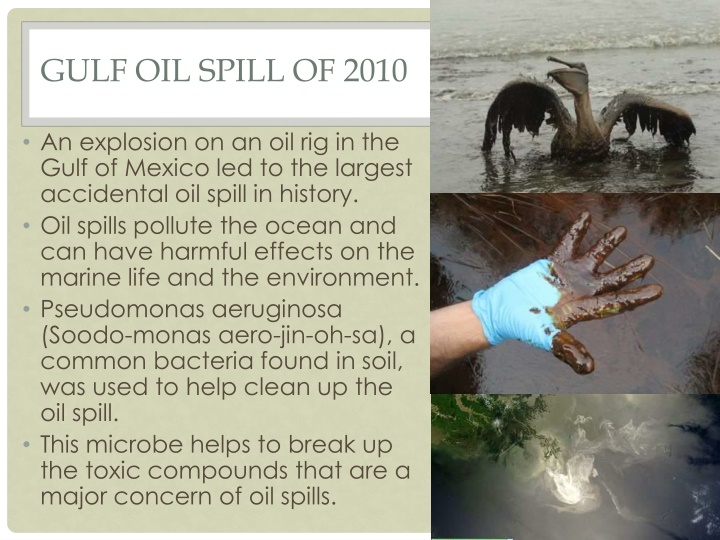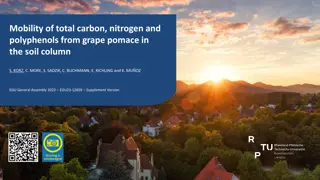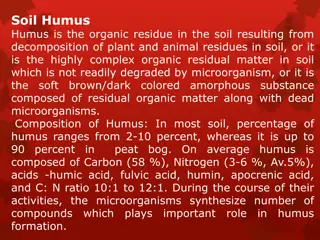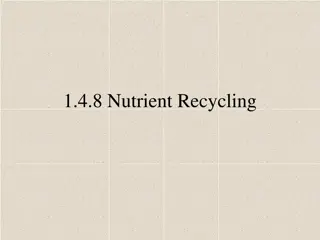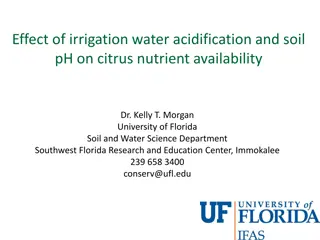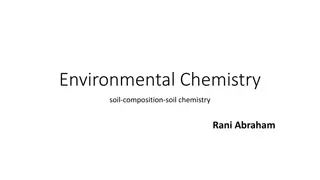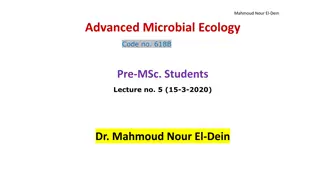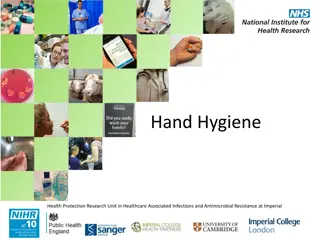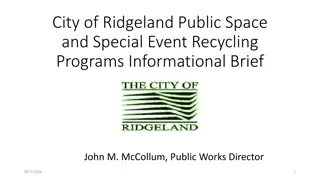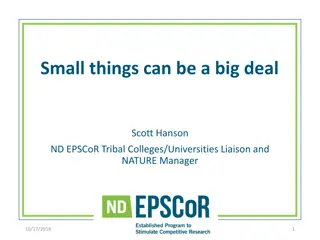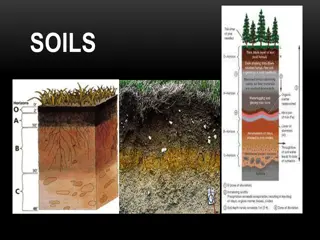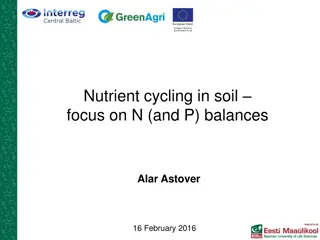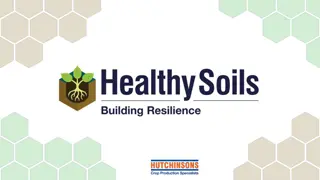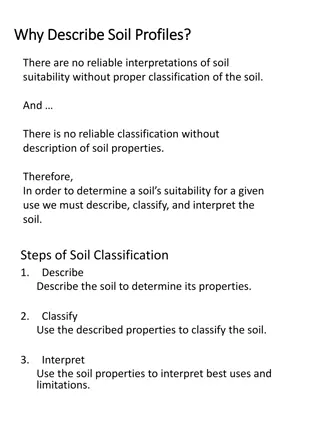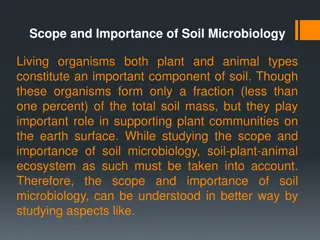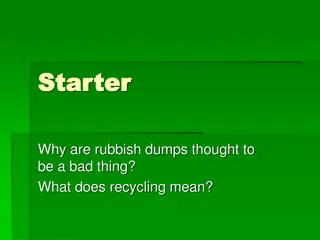The Role of Soil Microbes in Nutrient Recycling
Soil microbes such as bacteria, protozoa, and nematodes play a crucial role in nutrient recycling by breaking down organic matter, releasing nutrients for plant growth, and aiding in the decomposition process. These microscopic organisms help maintain soil health and ecosystem balance, highlighting the importance of their function in environmental sustainability.
Download Presentation

Please find below an Image/Link to download the presentation.
The content on the website is provided AS IS for your information and personal use only. It may not be sold, licensed, or shared on other websites without obtaining consent from the author.If you encounter any issues during the download, it is possible that the publisher has removed the file from their server.
You are allowed to download the files provided on this website for personal or commercial use, subject to the condition that they are used lawfully. All files are the property of their respective owners.
The content on the website is provided AS IS for your information and personal use only. It may not be sold, licensed, or shared on other websites without obtaining consent from the author.
E N D
Presentation Transcript
GULF OIL SPILL OF 2010 An explosion on an oil rig in the Gulf of Mexico led to the largest accidental oil spill in history. Oil spills pollute the ocean and can have harmful effects on the marine life and the environment. Pseudomonas aeruginosa (Soodo-monas aero-jin-oh-sa), a common bacteria found in soil, was used to help clean up the oil spill. This microbe helps to break up the toxic compounds that are a major concern of oil spills. File:Deepwater Horizon oil spill - May 24, 2010 - with locator.jpg
SOIL MICROBES AND THEIR ROLE
WHAT ARE SOIL MICROBES? Microbes are tiny microscopic organisms. Microbes that live in the soil include: Bacteria Protozoa Nematodes There are many different ways that soil microbes help plants. A single tablespoon of healthy soil might contain over a billion beneficial soil microbes. Microscopic means that the organisms are so small that they can only be seen with a microscope.
DECOMPOSERS Soil Microbes are decomposers. Decomposers consume dead plants and animals and recycle the nutrients back to plants. Decomposers include fungi, worms, bacteria, nematodes, and protozoa.
RECYCLING OF NUTRIENTS The nutrients from the broken down material help other plants grow. Plants die Soil Microbes break down the dead material
WHAT DOES ORGANIC MEAN? Organic Compounds compounds that contain carbon, and other elements such as hydrogen, oxygen, phosphorus, nitrogen, and sulfur Organic Matter Contains carbon Derived from living things Material in the process of decaying or decomposing Examples: dead leaves, plant trimmings, manure, wood, dead animals Decomposition of organic matter would take a lot longer on earth if there were not any soil microbes.
BACTERIA The most numerous type of soil organism Make nutrients available to plants
BACTERIA Break down minerals in the soil to release nutrients such as nitrogen, sulfur, phosphorus, potassium, calcium, magnesium, and iron Make and release plant growth hormones Increase solubility of nutrients. Nutrients must be dissolved in the soil before plants can use them Improve soil structure Fight root diseases Detoxify soil Transform nitrogen gas in the air to a form plants can use, and then back into a gas
NITROGEN FIXATION This process of transforming nitrogen into a form plants can use is known as nitrogen fixation.
PROTOZOA Predatory, meaning protozoa eat other microbes When protozoa eat bacteria, they speed up the cycling of nitrogen, making nitrogen more available to plants
NEMATODES A few species are harmful to plants, but these are kept in check by predatory nematodes and arthropods. The harmless nematodes eat decaying plants, soil microbes and other nematodes and release nutrients from the bodies of their prey. This speeds up nutrient recycling.
FUNGI Release nutrients from soil minerals Produce plant hormones Help trap nematodes that are harmful to plants Mycorrhizae live in or on plant roots Increase uptake of water and nutrients by roots. Produce hormones and antibiotics that help plant growth and prevent diseases. The fungi benefits by taking in the nutrients from the roots they live in.
Soil microbes are an important part of the soil food chain. The arrows in this food web represent the flow of energy from one organism to another. When one organism eats another, it gains energy from that organism.
COMPOSTING Compost is used as a fertilizer and soil amendment. Leaves, grass, twigs, and organic food scraps decompose over time to form humus, a rich, dark brown soil-like material that is rich in nutrients.
WHY COMPOST? It s good for your garden! Reduces fertilizer application Decreases the amount of waste sent to landfills
